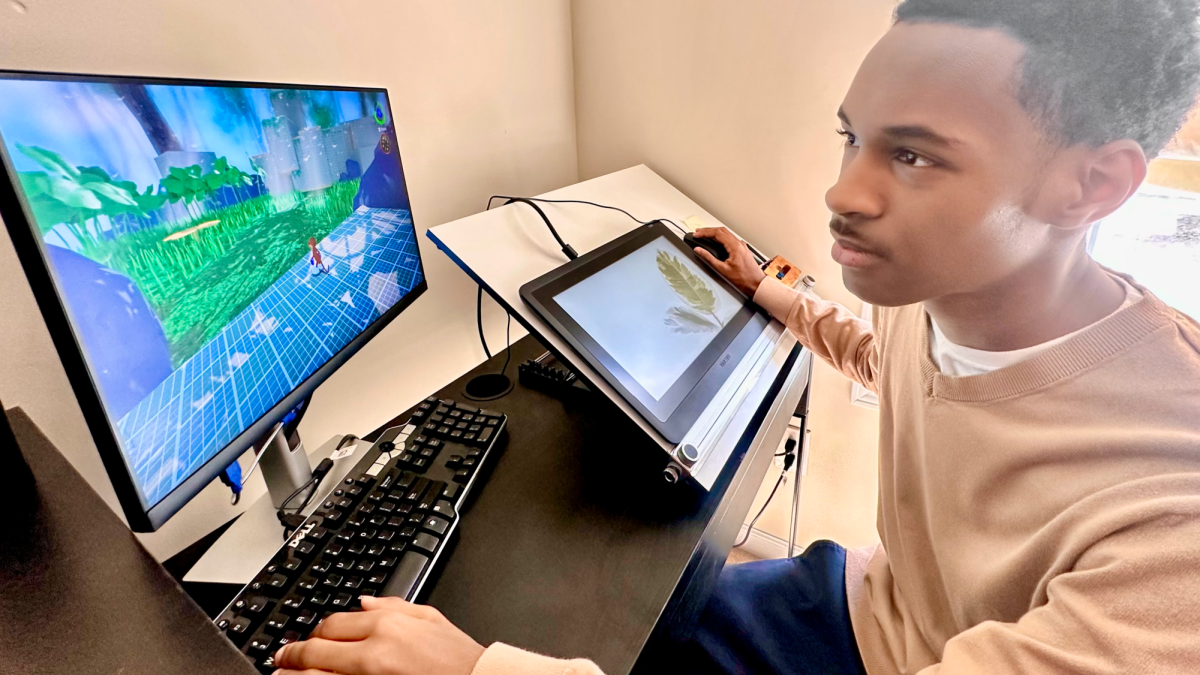Spring Forward is the evil twin of Fall Back: the same amount of time changes, however, Spring Forward steals an extra hour of rest from all of the sleep-deprived teens across the world. Tracing back to Daylight Savings Time, a movement implemented during the First World War in efforts to conserve fuel, springing forward is used today to give people an extra hour of daylight in the evening. Many people have argued that springing forward causes more harm than good.
For starters, one’s Circadian rhythm is often disrupted during the practice of springing forward. A Circadian rhythm is the mental, physical, and behavioral changes within an organism over a 24-hour cycle. Light and dark are the most influential factors in this rhythm, making it hard for the body to adjust to the new sleep schedule, and therefore causing fatigue and lowering productivity. This is felt at North Atlanta as students already struggle to maintain a decent sleep schedule. Junior Eric Contis is among those against Spring Forward, he said,” I hate it. Losing an hour of sleep is probably the last thing I would wish for as I enter Spring.”
Another flaw in Spring Forward is the lack of uniformity across the nation. Not all countries, or even states in the U.S., observe daylight saving time. For some, this is due to their lower latitudes causing daylight hours to be similar yearwide, making a time change ineffective. For others, they cited health issues as reasons for not following daylight savings time. Many US states have legislation lined up that is fighting for the end of daylight savings time, however, it has not gone into effect and will not change this for 2024. This can lead to inconsistencies in timekeeping and complicate international travel and commerce. “I agree with the states that have legislation in the works to stop daylight savings time. It is outdated and Georgia should follow in their lead,” said Junior Joshua Anderson.
Spring Forward is not without its benefits, however. It can provide opportunities for activities during the cooler hours of the night as temperatures rise, or conserve energy by reducing the need for artificial lighting. With more sunlight at the end of the day, it is arguable that productivity is increased with opportunities to do more. Additionally, climate advocates argue for Spring Forward’s energy conservation. The additional sunlight means less artificial lighting is needed in the evening. This creates less light pollution, as well as less energy use. “I enjoy the extra hour of sunlight because it gives me more time to do things outside and hang out with friends later,” said Junior Tenley Vassar.
The practice of Spring Forward, though intended to provide benefits such as extended daylight hours for leisure and energy conservation, often comes at a cost that outweighs its advantages. From disrupting Circadian rhythms and causing fatigue to creating inconsistencies in timekeeping and complicating international affairs, the drawbacks of losing an hour of sleep each spring are evident. The time has come to reconsider Spring Forward and make a choice that is more conscious of health, productivity, and global coordination.














